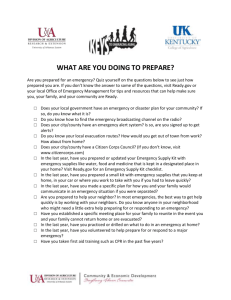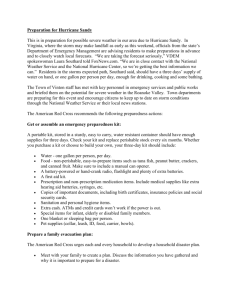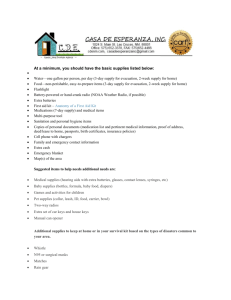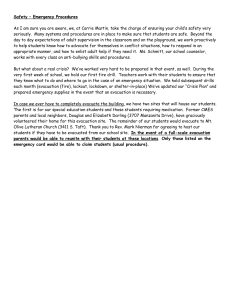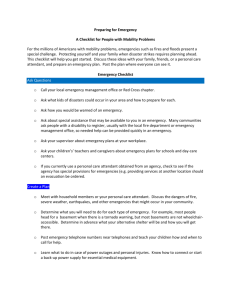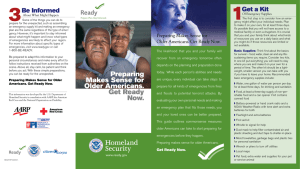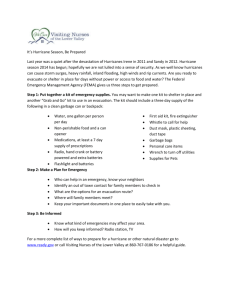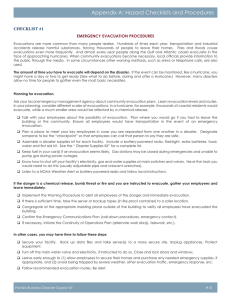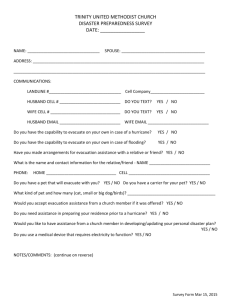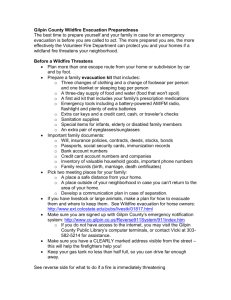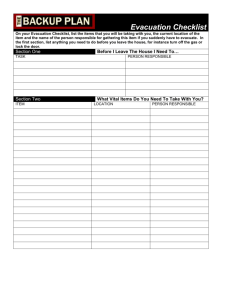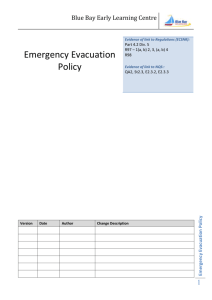Evacuation - providentlivingbranham
advertisement
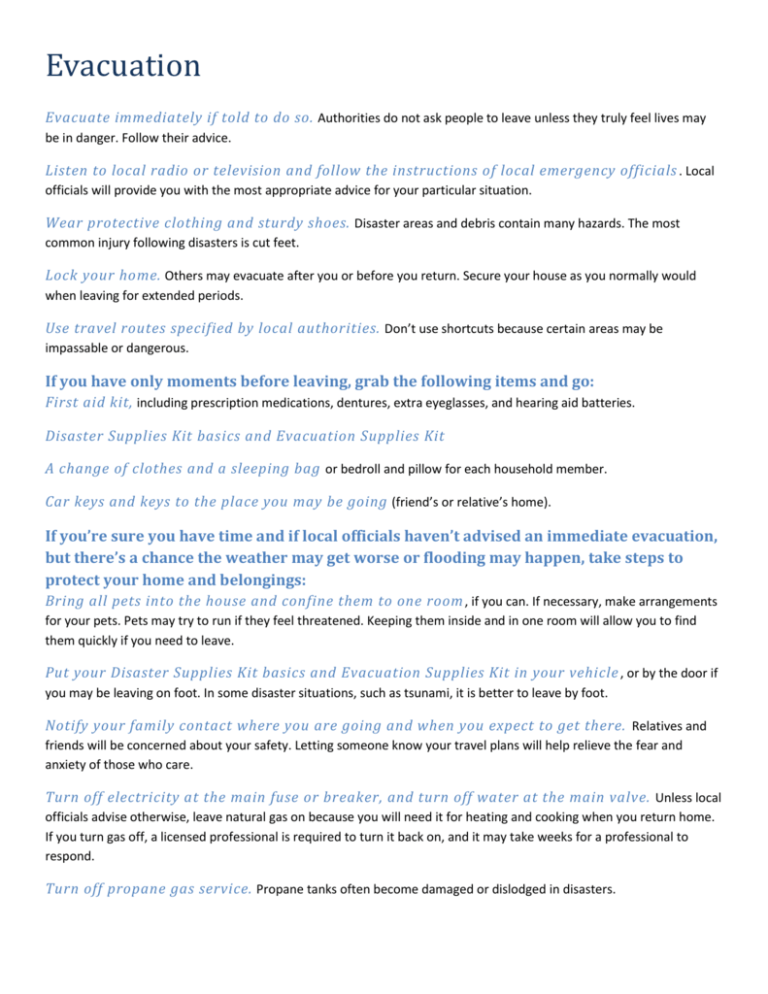
Evacuation Evacuate immediately if told to do so. Authorities do not ask people to leave unless they truly feel lives may be in danger. Follow their advice. Listen to local radio or television and follow the instructions of local emergency officials . Local officials will provide you with the most appropriate advice for your particular situation. Wear protective clothing and sturdy shoes. Disaster areas and debris contain many hazards. The most common injury following disasters is cut feet. Lock your home. Others may evacuate after you or before you return. Secure your house as you normally would when leaving for extended periods. Use travel routes specified by local authorities. Don’t use shortcuts because certain areas may be impassable or dangerous. If you have only moments before leaving, grab the following items and go: First aid kit, including prescription medications, dentures, extra eyeglasses, and hearing aid batteries. Disaster Supplies Kit basics and Evacuation Supplies Kit A change of clothes and a sleeping bag or bedroll and pillow for each household member. Car keys and keys to the place you may be going (friend’s or relative’s home). If you’re sure you have time and if local officials haven’t advised an immediate evacuation, but there’s a chance the weather may get worse or flooding may happen, take steps to protect your home and belongings: Bring all pets into the house and confine them to one room , if you can. If necessary, make arrangements for your pets. Pets may try to run if they feel threatened. Keeping them inside and in one room will allow you to find them quickly if you need to leave. Put your Disaster Supplies Kit basics and Evacuation Supplies Kit in your vehicle , or by the door if you may be leaving on foot. In some disaster situations, such as tsunami, it is better to leave by foot. Notify your family contact where you are going and when you expect to get there. Relatives and friends will be concerned about your safety. Letting someone know your travel plans will help relieve the fear and anxiety of those who care. Turn off electricity at the main fuse or breaker, and turn off water at the main valve. Unless local officials advise otherwise, leave natural gas on because you will need it for heating and cooking when you return home. If you turn gas off, a licensed professional is required to turn it back on, and it may take weeks for a professional to respond. Turn off propane gas service. Propane tanks often become damaged or dislodged in disasters. If strong winds are expected, cover the outside of all the windows of your home . Use shutters that are rated to provide significant protection from windblown debris, or pre-fit plywood coverings over all windows. If flooding is expected, consider using sand bags to keep water away from yo ur home. It takes two people about one hour to fill and place 100 sandbags, giving you a wall one foot high and 20 feet long. Make sure you have enough sand, burlap, or plastic bags, shovels, strong helpers, and time to place them properly.
